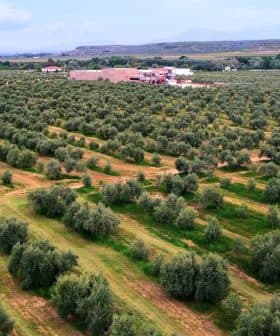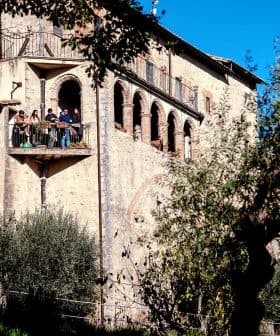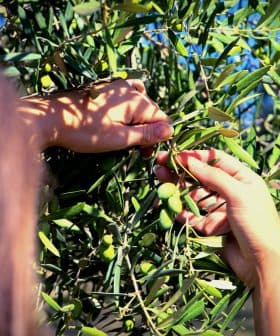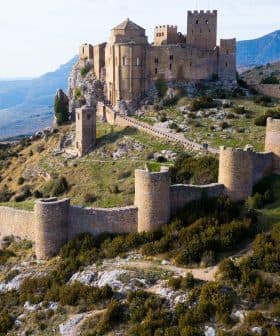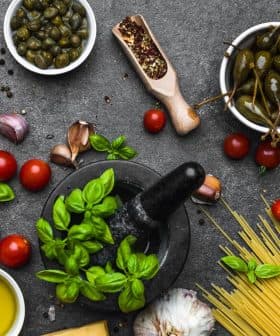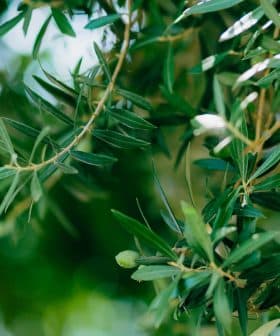Tour in Tunisia Explores Olive Oil Culture and Cuisine
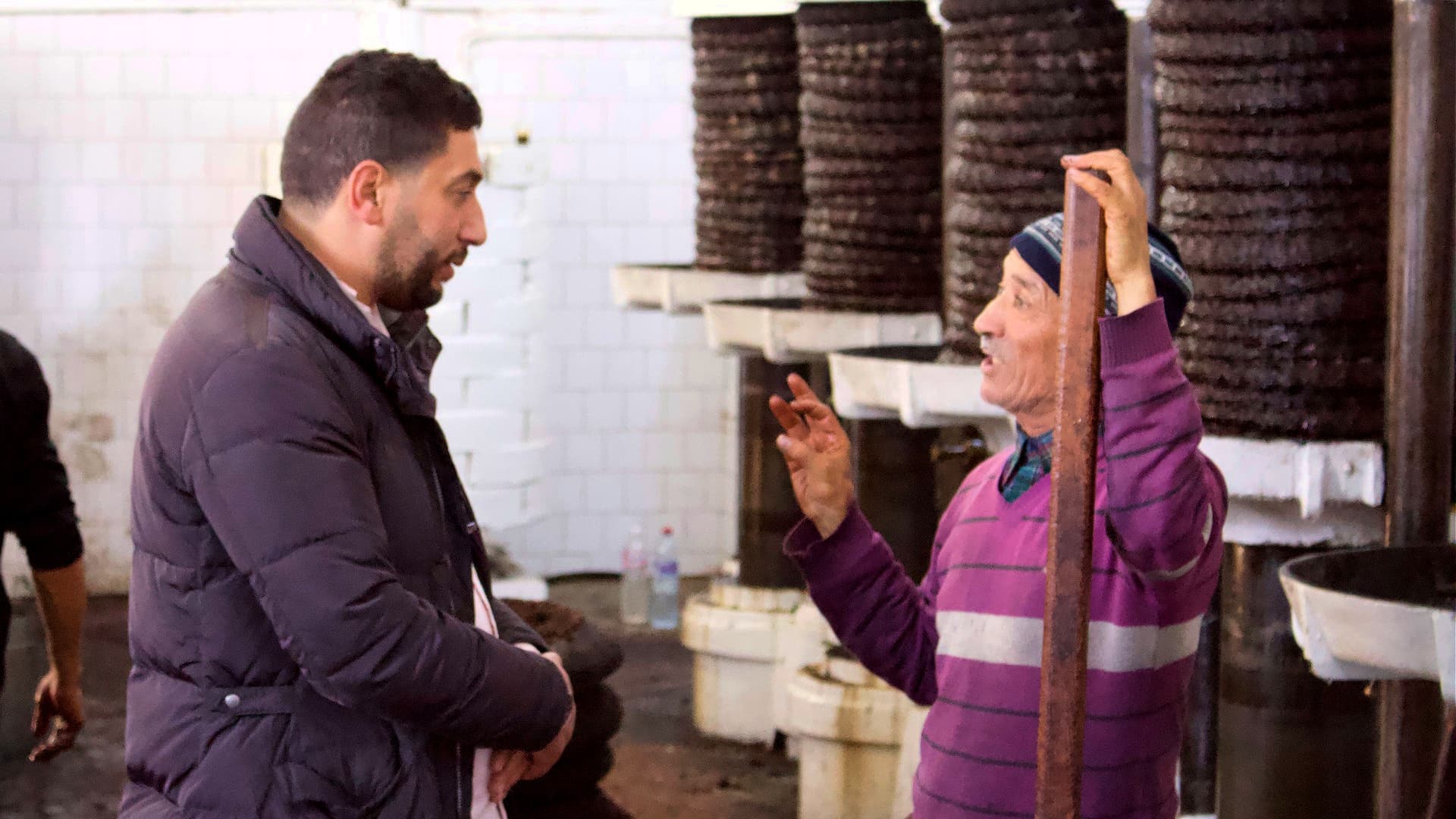
The Sfax Oleo Tour in Tunisia offers a new culinary and cultural experience focused on olive oil, with visits to olive farms, mills, and local artisan projects. The initiative aims to promote sustainable tourism, celebrate Tunisia’s culinary heritage, and create job opportunities, particularly for women and young people, while providing a unique sensory experience for visitors.
A new oleotourism route in Tunisia has been launched, highlighting the country’s food and culture. The Sfax Oleo Tour includes visits to olive farms, mills and local projects run by artisans and entrepreneurs working with derivatives of the olive tree and its fruit.
The tourism initiative fits into a broader project encompassing a series of country-wide itineraries celebrating Tunisia’s culinary heritage, particularly delicacies such as cheese, wine, harissa, dates, octopus, table olives and extra virgin olive oil.
See Also:Tunisia Takes Measures to Lower Olive Oil Prices at Home as Export Revenues FallThe mission of the Sfax Oleo Tour is to promote sustainable tourism and encourage an alternative model that steps away from the beach holidays the North African country has long had at the center of its tourism marketing strategy.
In December, the first edition of this Sfax olive oil culinary route had a four-day test run with close to two dozen participants, including olive oil experts from Italy, Turkey, France and Croatia, tourism professionals and local and international journalists.
Situated on Tunisia’s eastern coastline, Sfax is the sixth largest and second most populated governorate. The region is home to 10 million olive trees and 440 producers. Sfax is responsible for about 30 percent of Tunisian olive oil production.

Faouzi Zayani, president of Tunisia Olive Association (Photo: Sfax Oleo Tour)
“Sfax is the capital of olive oil in Tunisia,” said Faouzi Zayani, president of the Tunisia Olive Association based in Sfax. “Here, we have 32,000 hectares covered with olive trees. Our local variety is Chemlali, a varietal resistant to illnesses and the drought conditions our region is prone to.”
As part of the itinerary, the group stopped at the Huilerie Hamed Kamoun olive mill in Sfax, which dates back to 1820 and where the traditional pressing method utilizing a grinding stone and hydraulic press continues today.
Participants also saw one of the many Tunisian mills equipped with state-of-the-art extraction technology at the Ben Said family’s Dear Goodness olive farm in Hazeg, north of Sfax.
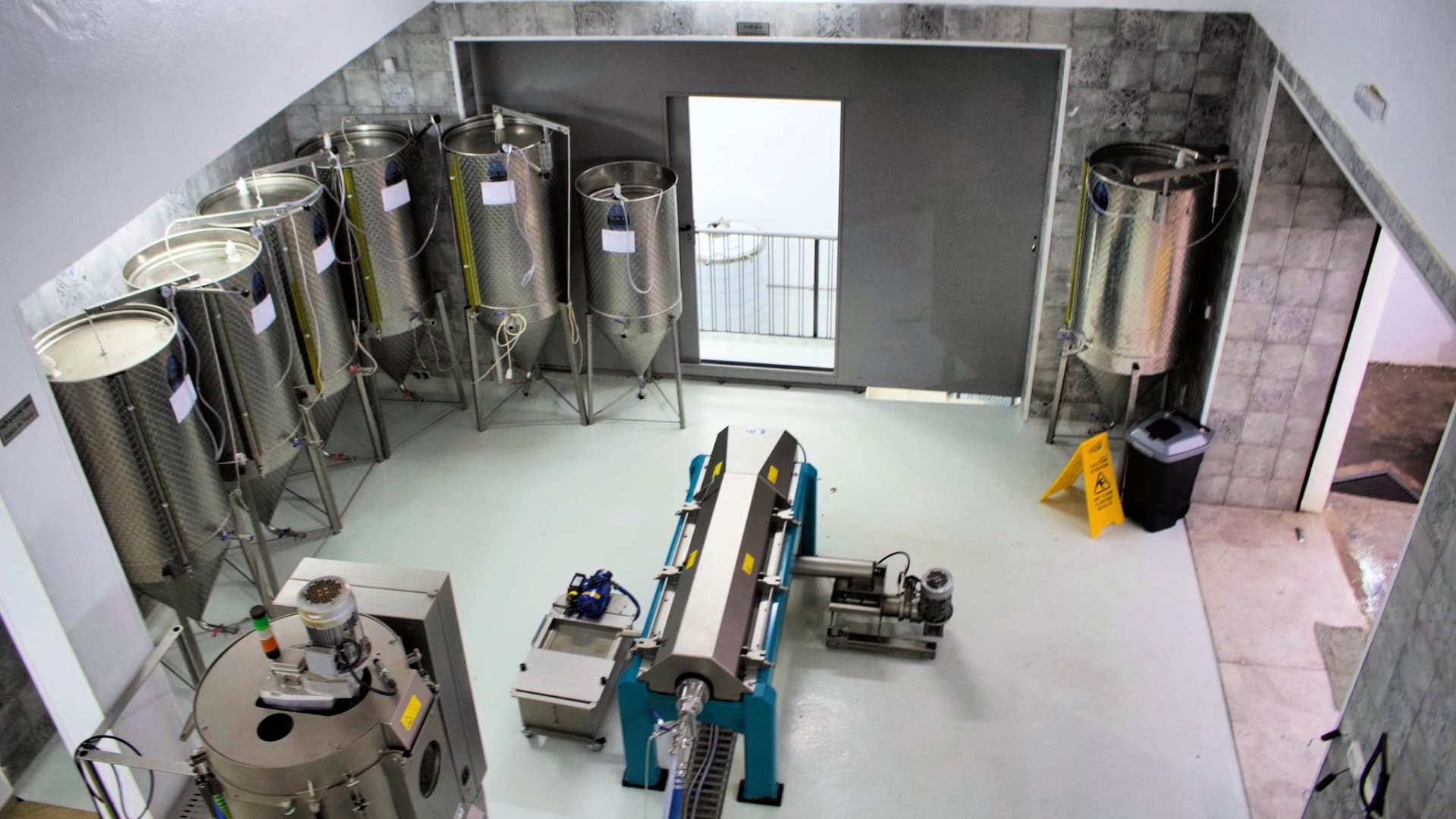
After seeing the old, the Sfax Oleo Tour takes visitors to the modern Dear Goodness olive mill (Photo: Sfax Oleo Tour)
An olive oil itinerary is, of course, not complete without a tasting session. Sonda Laroussi Mezghani and her team of expert tasters at Olea Conseils led participants through a guided tasting of a selection of high-quality Tunisian extra virgin olive oils.
Meanwhile, a stop at the organic farm run by Mohamed Maazoun provided an introduction to the biodynamic farming system for the production of olives as well as local produce cultivated exclusively with organic and locally sourced fertilizers.
See Also:The best extra virgin olive oil from Tunisia“The olive tree brings people together,” said Laroussi Mezghani. “It’s a magic and generous tree. My goal is to share the culture of Tunisia’s olive oil tradition.”
In 2014, Olea Conseils became Tunisia’s first independent olive oil-tasting panel recognized by the International Olive Council. In 2023, it opened its laboratory for sensory and physico-chemical analysis of olive oil, also receiving the IOC’s stamp of approval.
The group had the opportunity to interact with olive producers, professionals, local artisans, and entrepreneurs working with derivatives of the olive tree and its fruit.
The experiential approach of the culinary and cultural itinerary provided a chance to get to know Tunisia’s culinary heritage through each of the senses via cooking demonstrations and tastings of typical local specialties and products made with olive oil.
Extra virgin olive oil is a key ingredient in many local artisanal delicacies handcrafted by Sfax-based entrepreneur Dalenda Ellouze of Dose Et D’mi.
“Quality is everything. That’s why I use only the best quality olive oil I can find,” she said while recreating her grandmother’s ancestral recipe for laklouka, a local pastry made of millet flour, raisins and Chemlali olive oil.
Olive oil is also a vital ingredient in hrouss (spicy chili pepper paste) and bsissa (a sweet paste made of seeds, herbs and cereals), as well as other gourmet products handcrafted by her team and which participants had the opportunity to sample.
Other women entrepreneurs shared how they utilize every part of the olive tree in their artisanal creations and products.
Rania Mseddi of Ovarti Olive Wood showcased her decorative objects, bowls and kitchen utensils carved from the wood of the olive tree.
Meanwhile, Leila Hamma showed that olive oil is a vital ingredient in the beauty creams and oils she produces, while Halima Babay demonstrated how she crafts natural soaps from “liquid gold.”
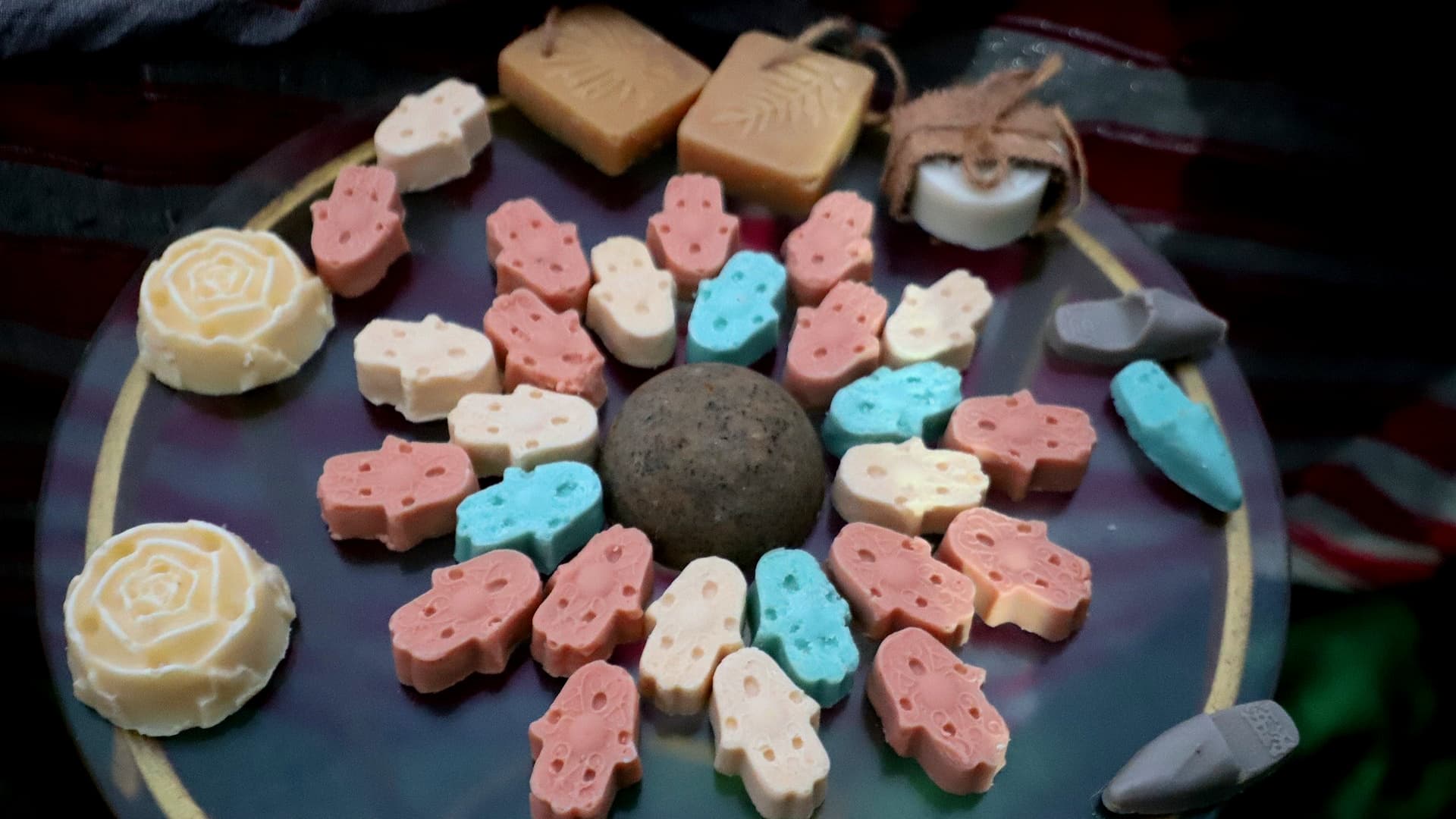
Soap made of olive oil by Halima Babay (Photo: Sfax Oleo Tour)
The complete sensory experience offered by the itinerary was rounded off with olive oil treatments and massages at Spa Mahassen, founded by Mahassen Keskes Jmel, another enthusiastic local woman entrepreneur.
Another important aspect of the Sfax Oleo Tour includes the opportunity to stay in rural guesthouses run by local people to promote an alternative model of tourism that takes visitors away from the beach resorts and into Tunisia’s abundant olive groves.
The itinerary includes stays at traditional guesthouses on rural properties scattered with olive trees, such as Dar Lella Aicha and Gîte Feki, where home-cooked meals are prepared with locally-grown produce, as well as an overnight at Amber Park for ecologic camping.
“Our target groups include both Tunisians and international visitors to Tunisia,” said Naziha Grati Kammoun, head of the Sfax olive oil culinary route project and vice-president of the Tunisia Olive Association. “It’s designed for a variety of guests, from families to solo travelers.”
“Apart from showcasing Tunisia’s culinary heritage, other important objectives of the project include the creation of job opportunities and the involvement of women and young people in sustainable tourism,” she added.
“We have 22 local partners who are part of the culinary itinerary who are passionate about local heritage and are committed to the project,” Grati continued. “We developed and implemented a three-month training program for them in a variety of modules such as entrepreneurship, management, storytelling, communication and digital marketing, as well as olive oil sensory assessment and culinary arts.”
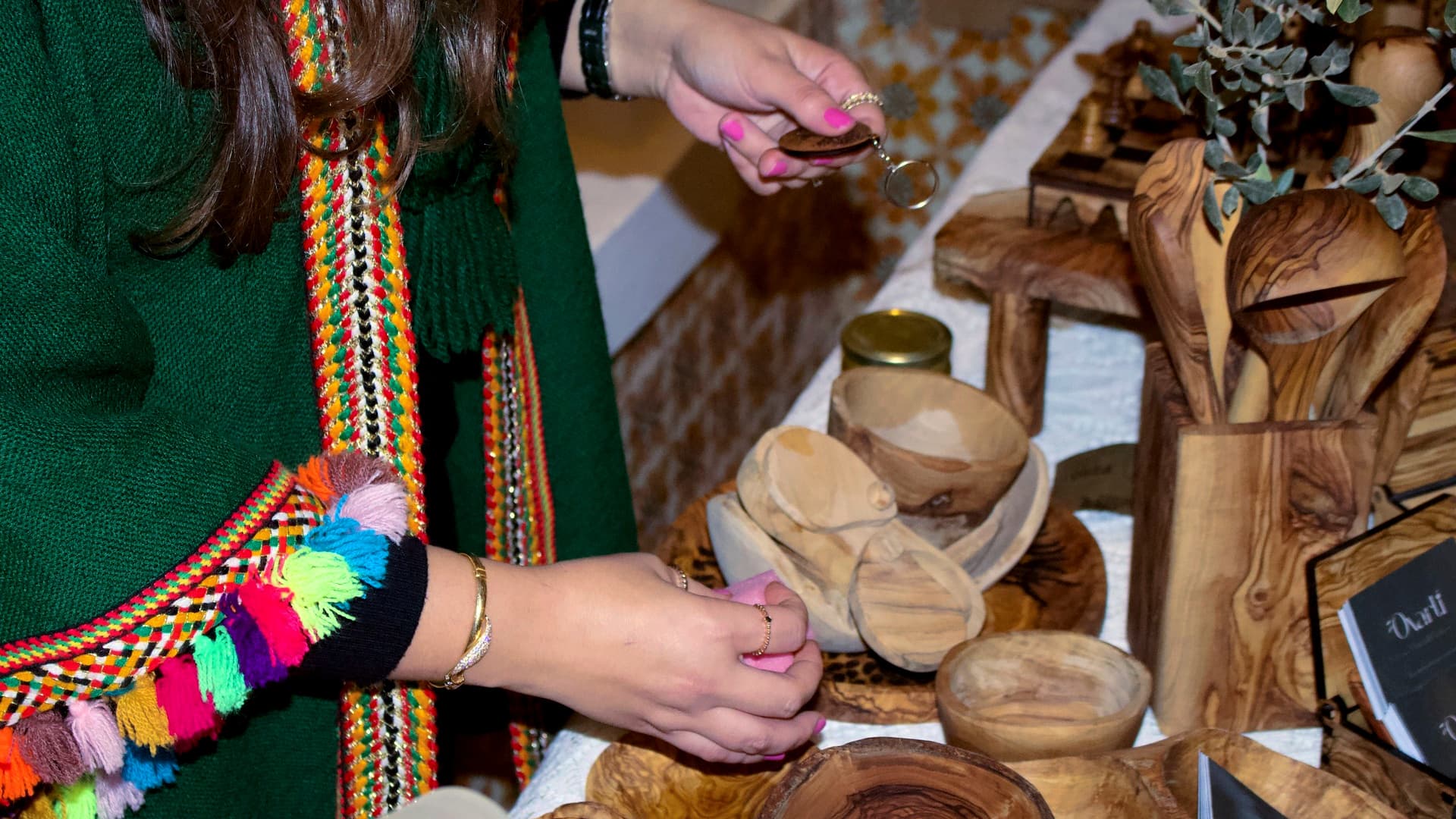
Creations crafted from olive wood by Rania Mseddi (Photo: Sfax Oleo Tour)
A communication strategy is being developed to take the next step toward promoting the Sfax Oleo Tour.
As travelers increasingly look for unique experiences that allow them to get close to a country’s local culture, an initiative such as the Sfax Oleo Tour is an example of a cultural itinerary that engages all the senses while leading visitors “off the beaten track.”
At the same time, this innovative project is a step beyond the usual format of olive oil tourism, which is often mostly limited to visits to groves and olive mills.


